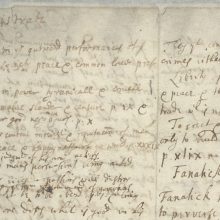
Photo from archive.org
This article reconstructs an overlooked tradition of direct democracy within early twentieth-century Indian political thought. It focuses on four political thinkers—Radhakumud Mookerji (1884–1964), Brajendranath Seal (1864–1938), Radhakamal Mukerjee (1889–1968), and… Click to show full abstract
This article reconstructs an overlooked tradition of direct democracy within early twentieth-century Indian political thought. It focuses on four political thinkers—Radhakumud Mookerji (1884–1964), Brajendranath Seal (1864–1938), Radhakamal Mukerjee (1889–1968), and Beni Prasad (1900–1945)—all of whom were central figures in a genre of federalist historiography of premodern Indian politics which emerged in the 1910s. The article interprets these thinkers as critics of the Indian nationalist movement's embrace of electoral government in the late nineteenth and early twentieth centuries. Through a contextual reading of their major written works in the late 1910s and the 1920s, the article traces the rise of a distinct theory of federalist constitutionalism, modelled on premodern state structures and oriented towards the legislative empowerment of local citizens’ assemblies.
Journal Title: Modern Intellectual History
Year Published: 2021
Link to full text (if available)
Share on Social Media: Sign Up to like & get
recommendations!